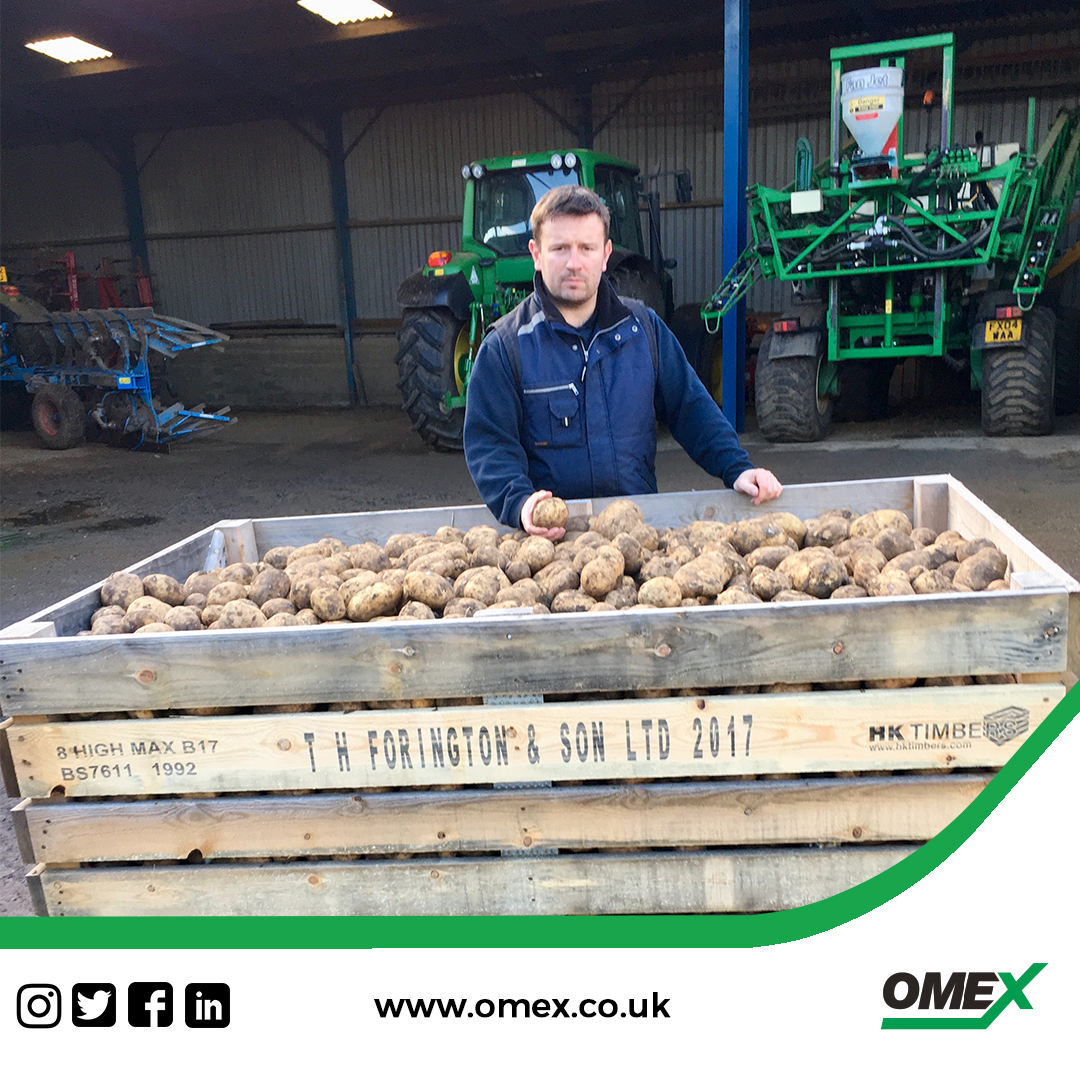POTATO CROP CANOPY IMPROVEMENT HOLDS MOISTURE BENEFITS
Applying micro nutrients to potatoes grown on unirrigated soils has helped a Lincolnshire grower protect existing soil moisture and maximise canopy growth. However, repeated applications has also helped achieve higher yields and a better skin finish, resulting in a more saleable premium product.
T H Forington and Sons, near Gainsborough grow potatoes mainly for the pre-pack wholesale market. Will Forington has discovered that protecting the soil moisture content and maximising canopy growth has been easier to achieve with the use of Bio 20, a foliar 20:20:20 fertiliser and biostimulant mix developed by OMEX.
Being unable to irrigate on his silty and comparatively water-retentive soils has never been an ultimately limiting factor, but he has found that micro-management of the crop and especially canopy building can make all the difference in terms of achieving production targets.
On the 300 acre farm that runs alongside the River Trent, Mr Forington will apply Bio 20 at 2L/ha at least 5-6 times in a season starting when the crop is meeting along the row and continuing until just pre-senescence.
“We aim to include Bio 20 regularly in the blight programme,” he explains. “Not only does the product counteract stress by improving water uptake in the plant, the improvement in the canopy structure is noticeable. This makes for an all round healthier plant, better able to cope with stress, but also to maximise nutrient uptake and build yield and quality that we might struggle with achieving otherwise.”
Although often used as a standalone NPK foliar fertiliser, the special blend of micronutrients and biostimulants means that Bio 20 is ideally suited to be used as a nutritional boost, as well as part of the overall fertiliser programme.
“Canopy build is all important for us,” says Mr Forington “We’ve found that achieving maximum cover in the shortest possible time-frame has the added benefit of building a competitive crop which, with our weed spectrum – including aggressive populations of black bindweed and fat hen –has an additional benefit in allowing the crop to outcompete weeds for light, water and nutrients, very effectively.
“This is especially true in times where limited rainfall means that herbicide activity from residuals might be compromised,” he adds. “The microclimate in the potato crop dictates many things from disease spread to nutrient uptake and if we manage that correctly it will underpin our whole growing strategy.”
Another considerable benefit of applying the product regularly, that Mr Forington has observed, is the reduction of smaller tuber numbers and a more even sample, which again translates into a more saleable product. The fact that Bio 20 can be used as a management tool and not just a fertiliser means that for Mr Forington it ticks every box, not just as a grower but as a packer/wholesaler as well.
“If we were reliant on irrigation for yield, then I do believe that the addition of Bio 20 would produce significant savings in application costs.” he says. “It has the ability to push the crop to levels that would otherwise be unachievable under our current system.
“The potential for us to extract maximum value from the crop using Bio 20 is huge. It’s all about keeping the plant healthy through the right balance of nutrients. The effects of which, are far reaching and with many additional benefits. For us it has now become an essential part of the programme.”
Micro nutrients aid potato operation
April 27, 2018
Published by laserred
